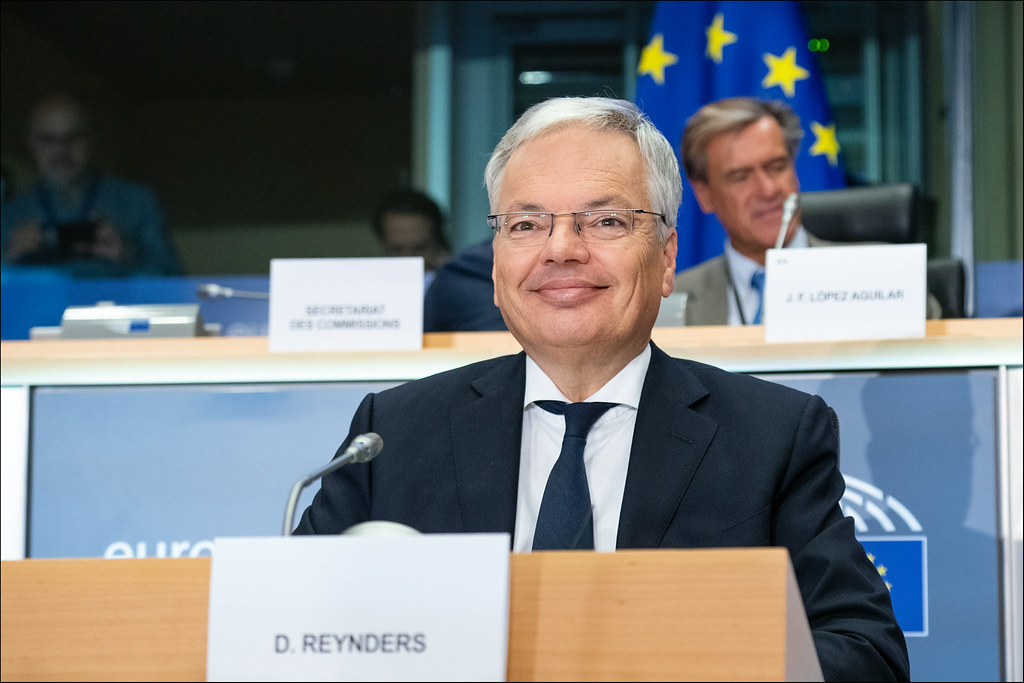
During the summer, the Commission expects Greece to send more information about the assets in Greece of Russian oligarchs and Russian entities included in the list of European sanctions against Russia, which could be frozen and perhaps even confiscated through judicial process, justice commissioner Didier Reynders explained through his interview with “NEA” daily.
Mr. Reynders noted that the Commission wants more information, numbers and details about the reality in their country about the assets of oligarchs and entities, so that it can proceed with freezing and perhaps confiscation procedures through judicial process. Reynders who is in charge of a special task force to organize the process of freezing and confiscating the assets of Russian oligarchs and Russian entities, which are on the sanctions list noted that Greece has sent some information, but wants more. “I insisted at the last task force meeting to get more details during the summer,” he says, explaining that so far six countries, Luxembourg, Belgium, Germany, France, Ireland and Austria, have launched related procedures for frozen assets worth 12, 78 billion euros against a total of 13.92 billion in the EU.
Read also – Russian PM puts Greece on “unfriendly countries” list
The Belgian commissioner’s aim is not only to freeze assets, but also to potentially confiscate them, which requires the owners to be involved in criminal offences, such as corruption or money laundering.
“We proposed to expand the list of Euro-crimes to include the attempted violation of sanctions as a crime,” Reynders explained. Having already received the green light from the European Parliament, the Commission is waiting for the approval of the Council in October, after which it will propose a directive for the harmonization of sanctions so that it is possible in all member states to prosecute and organize a trial for violating sanctions. The ultimate goal is to put the money from the confiscations into a common fund for Ukraine, the European official says, hastening to note that it is apparently not enough to rebuild the country.
In this context, he raised the question of how Russia could participate in the reconstruction project. “There are three possibilities. Voluntary participation, negotiations during a peace process and perhaps freezing some of Russia’s assets for a long period of time until a real participation,” he pointed out, giving the example of the Russian central bank’s foreign exchange reserves, of which $300 billion have been frozen. But the answer to the question of whether they can be confiscated is “not obvious”, explains the justice commissioner, as there are immunities in international law for states and entities, there are also issues related to the human rights charter. He informed the paper that similar considerations and investigations are being carried out in the USA and Canada.
War crimes
As regards war crimes in Ukraine and the Ukrainian president’s request for an international tribunal. “Our aim is to use the existing tools, to improve their operation, to use the national jurisdictions, in Ukraine, where there are many investigations, and in member states. Fourteen member states are conducting investigations with universal jurisdiction. At the same time, we are trying to use the existing international courts, the International Criminal Court (ICC), the European Court of Human Rights” noted the Justice Commissioner. He also referred to the establishment of an investigative team involving Eurojust and six countries, that will ponder the extension of Eurojust’s jurisdiction over the storage of evidence.
“It is important that Ukraine ratifies the Rome Statute and joins the ICC before we discuss any other form of possibilities. Demonstrate a commitment to the Rome Statute and the ICC’s ability to investigate all possible crimes. It appears that the vast majority of crimes are committed by Russian soldiers against Ukrainian civilians. It is better to have investigations by the ICC with full details. Not just to have national (judicial) decisions in Ukraine, but also international decisions from the ICC. After the summer we will have more details about the possibility of proceeding with the war crimes investigation by the ICC. Maybe in the future we will consider the possibility of a special court” he said categorically.
He did not rule out having relevant discussions with the UN, considering that it will be difficult at the level of the Security Council, of which Russia is a permanent member, but there may be a way out through the General Assembly. He predicted, however, that solving the crimes in Ukraine may take a long time. “We may see an ongoing process of investigations, prosecutions and trials. It will be a long journey. It is a message to the Russian authorities and to the Russian people, who have committed atrocities, that if they are perpetrators of atrocities they will face the risk of investigations, prosecution and trial within their lifetime.”
Justice in Greece
NEA also asked him about the Greek judicial system. “In Greece, positive measures are being taken to improve the efficiency of the Judiciary” he stated, referring to the reform of the School of Judges, which aims to increase the quality of the training of judges, to the planned creation of a National School of Judicial Officers, which will contribute to the improvement of quality of assistance to judges and the management of courts, in the revision of the Code of Civil Procedure that seeks to have a positive impact on the efficiency of Justice, in particular with regard to delays in civil Justice, the digitization of Justice, for which he noted that it is included in Greek recovery plan. “What we are asking from Greece is the better participation of judges in the process of appointments to the highest positions in the Council of State, the Supreme Court and the Audit Court” he concludes.
Latest News
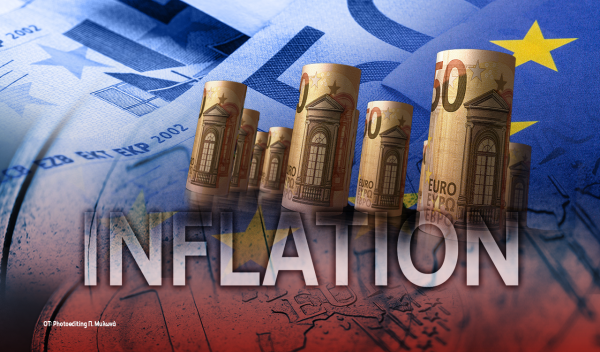
Eurozone Inflation Eases to 2.2% in March
Compared to February, inflation decreased in 16 member states, remained unchanged in one, and rose in ten.

Bank of Greece: Primary Gov. Surplus €4.1b Jan.-March 2025
The data released today by the Bank of Greece revealed that the central government’s overall cash balance recorded a surplus of €1.465 billion in the first quarter of 2025, compared to a deficit of €359 million in the corresponding period of 2024.

Greek Government Reissues 10-Year Bond Auction for €200 Million
The amount to be auctioned will be up to 200 million euros, and the settlement date is set for Friday, April 25, 2025 (T+5)

Greece Defines Continental Shelf Limits and Maritime Zones in Landmark EU Document
The Maritime Spatial Planning (MSP) framework represents a comprehensive approach to spatial planning and is crucial for the successful development of a blue and circular economy

EU Praises Greece’s RRF Progress as Revised Recovery Plan Nears Completion
Athens is preparing to submit its revised “Greece 2.0” Recovery and Resilience Plan after Easter, with a slight delay from the initial timeline but with the European Commission’s approval.

Greek €200M 10Y Bond to be Issued on April 16
The 3.875% fixed-interest-rate bond matures on March 12, 2029, and will be issued in dematerialized form. According to PDMA, the goal of the re-issuance is to meet investor demand and to enhance liquidity in the secondary bond market.

German Ambassador to Greece Talks Ukraine, Rise of Far Right & Tariffs at Delphi Economic Forum X
Commenting on the political developments in his country, the German Ambassador stressed that it was clear the rapid formation of a new government was imperative, as the expectations across Europe showed.

Athens to Return Confiscated License Plates Ahead of Easter Holiday
Cases involving court orders will also be excluded from this measure.

Servicers: How More Properties Could Enter the Greek Market
Buying or renting a home is out of reach for many in Greece. Servicers propose faster processes and incentives to boost property supply and ease the housing crisis.

Greek Easter 2025: Price Hikes on Lamb, Eggs & Sweets
According to the Greek Consumers’ Institute, hosting an Easter dinner for eight now costs approximately €361.95 — an increase of €11 compared to 2024.







![Πλημμύρες: Σημειώθηκαν σε επίπεδα ρεκόρ στην Ευρώπη το 2024 [γράφημα]](https://www.ot.gr/wp-content/uploads/2025/04/FLOOD_HUNGRY-90x90.jpg)

























![Πλημμύρες: Σημειώθηκαν σε επίπεδα ρεκόρ στην Ευρώπη το 2024 [γράφημα]](https://www.ot.gr/wp-content/uploads/2025/04/FLOOD_HUNGRY-600x450.jpg)
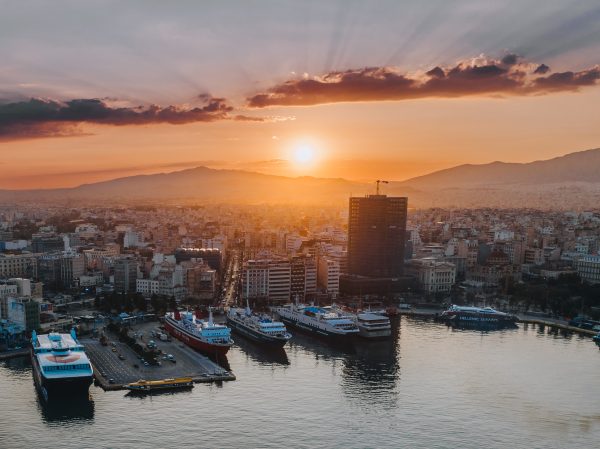

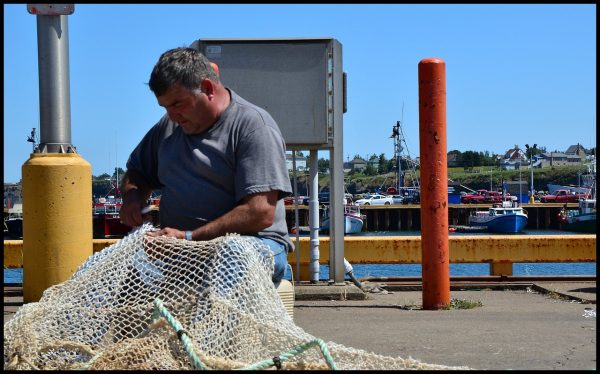

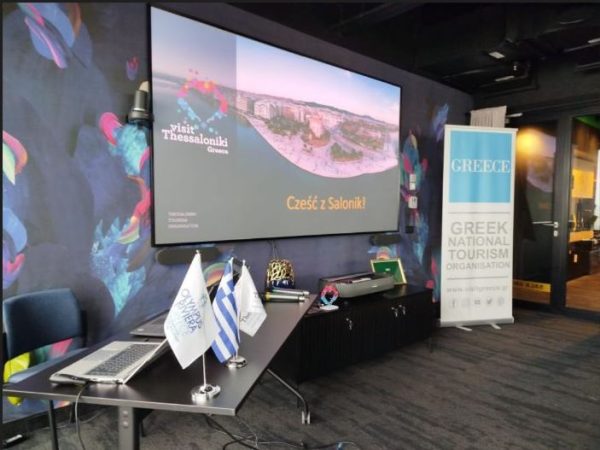


 Αριθμός Πιστοποίησης
Αριθμός Πιστοποίησης